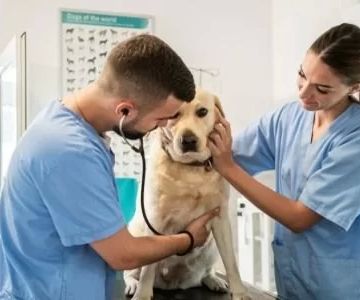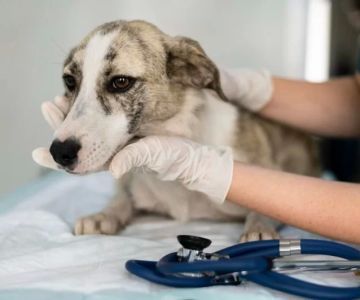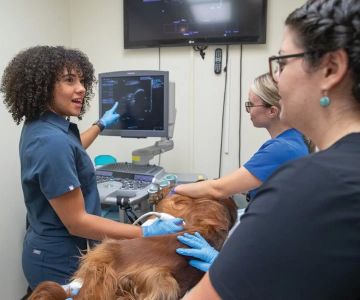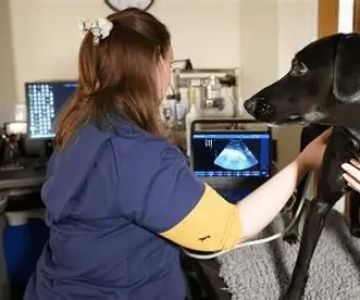What Does It Take to Become a Veterinarian? A Comprehensive Guide
- 1. Education Requirements for Becoming a Veterinarian
- 2. Key Skills and Traits Required for Veterinary Medicine
- 3. Experience Prerequisites Before Becoming a Veterinarian
- 4. Steps to Apply to Veterinary School
- 5. What to Expect During Veterinary School
- 6. Career Opportunities and Specializations in Veterinary Medicine
1. Education Requirements for Becoming a Veterinarian
To become a veterinarian, the first step is completing the necessary educational requirements. Typically, aspiring veterinarians must complete an undergraduate degree, often with a focus in biology, chemistry, or animal science. This foundation is essential for understanding the biological systems and medical sciences that veterinarians work with daily.
After completing undergraduate studies, students must apply to a veterinary school, which requires a competitive admission process. Veterinary schools offer a four-year program that includes both classroom instruction and practical experience in animal care. During this time, students gain knowledge in subjects such as anatomy, pharmacology, surgery, and diagnostics.
2. Key Skills and Traits Required for Veterinary Medicine
While education is critical, becoming a successful veterinarian also requires certain key skills and personal traits. Compassion and empathy are essential for connecting with both animals and their owners. Veterinarians must be able to communicate clearly and effectively, especially when delivering difficult news to pet owners or working as part of a medical team.
Attention to detail and critical thinking skills are also necessary for diagnosing conditions and making medical decisions that could affect the lives of animals. Additionally, a strong interest in science and medicine is essential, as the profession requires continuous learning to stay updated with the latest medical practices and innovations.
3. Experience Prerequisites Before Becoming a Veterinarian
Before entering veterinary school, gaining experience working with animals is highly beneficial. Many veterinary programs require applicants to have hands-on experience through internships, volunteer work, or jobs at animal shelters, farms, or clinics. This not only strengthens the application but also provides insight into the day-to-day responsibilities of a veterinarian.
Internships allow aspiring veterinarians to observe and assist professionals, giving them a better understanding of animal care and the various challenges veterinarians face. This experience also helps them decide on potential specializations, such as emergency care or exotic animal care.
4. Steps to Apply to Veterinary School
After meeting the educational and experience prerequisites, aspiring veterinarians must go through a thorough application process. Veterinary schools often require applicants to submit transcripts, letters of recommendation, and a personal statement explaining why they want to become a veterinarian. Many schools also require applicants to take the Graduate Record Examination (GRE) or other standardized tests.
It’s important to research specific admission requirements for each veterinary school, as they can vary. Some schools may also look for candidates with leadership qualities or who have demonstrated dedication to the field through volunteer work or extracurricular activities related to animal care.
5. What to Expect During Veterinary School
Veterinary school is a rigorous and demanding experience. Students spend the first few years in the classroom, where they study subjects like animal anatomy, pharmacology, pathology, and medical procedures. The curriculum also includes a substantial amount of laboratory work and practical skills training.
In the later years, students participate in clinical rotations, where they work directly with animals under the supervision of licensed veterinarians. These rotations are essential for gaining hands-on experience and applying the theoretical knowledge learned in the classroom. Veterinary students also learn to perform surgeries, administer anesthesia, and diagnose a range of animal diseases.
6. Career Opportunities and Specializations in Veterinary Medicine
Upon graduation from veterinary school, individuals are awarded the title of Doctor of Veterinary Medicine (DVM). However, the path does not end there—veterinarians can pursue a variety of career opportunities and specializations. Some veterinarians choose to work in private practice, caring for pets, livestock, or exotic animals. Others may work in research, animal welfare, or public health roles.
Specializations in veterinary medicine include surgery, dermatology, ophthalmology, and internal medicine, among others. Veterinarians may also pursue careers in teaching, where they can pass on their knowledge to the next generation of veterinary professionals. The ability to specialize allows veterinarians to tailor their careers to their personal interests and passions within the field.









